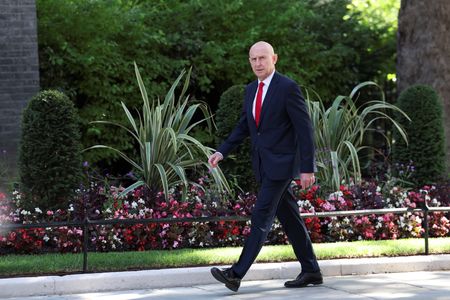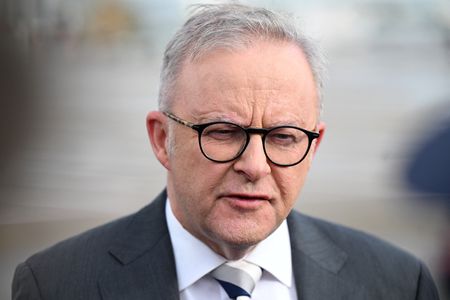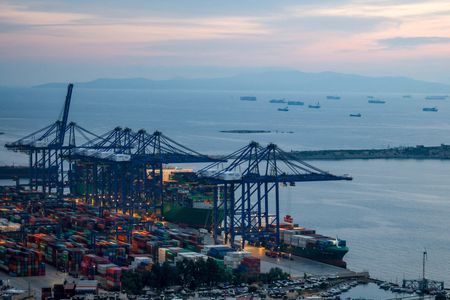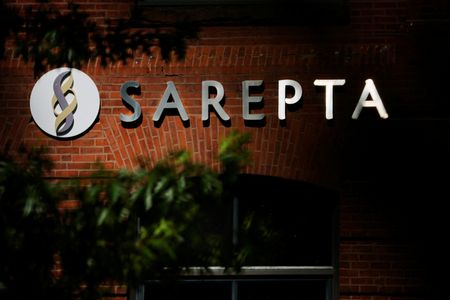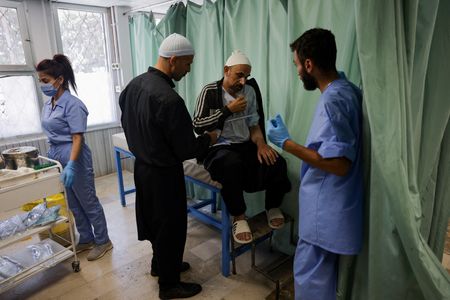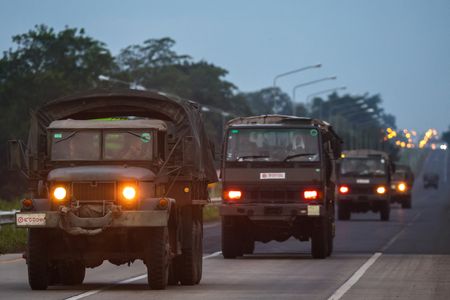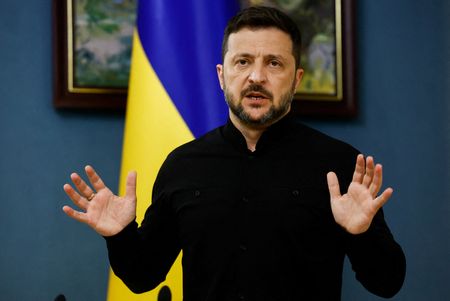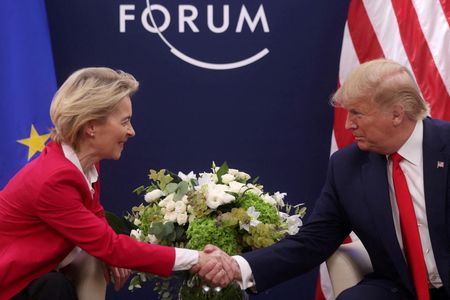By Kirsty Needham
SYDNEY (Reuters) -Britain’s commitment to Australia is “absolute”, Defence Secretary John Healey said on Friday as both nations’ defence and foreign ministers held talks in Sydney on issues such as deepening commitment to the AUKUS nuclear submarine partnership.
Healey and British Foreign Secretary David Lammy were met by Prime Minister Anthony Albanese in Sydney ahead of talks focused on boosting trade ties and advancing the AUKUS partnership to build a new class of nuclear-powered submarine.
U.S. President Donald Trump’s administration is reviewing the three-way deal struck in 2021, before he returned to power, and has pressed Australia to increase defence spending to counter China’s military build-up in the Indo-Pacific region.
Defence Minister Richard Marles said a treaty to be signed with Britain on submarine production on Saturday was their most significant since Australia’s self-governing federation in 1901.
The new treaty will underpin submarine programmes for 50 years, creating tens of thousands of jobs, and is expected to be worth up to 20 billion pounds ($27 billion) to Britain in exports over the next 25 years, its defence ministry said.
It will also see increased port visits to Western Australia by Britain’s Astute-class nuclear submarines.
“Our UK commitment to Australia is absolute,” Healey said, adding that the militaries of the two countries were deepening ties to tackle growing uncertainty and threats.
A joint statement after the meeting said Britain and Australia “reaffirmed that the security, resilience and prosperity of the Indo-Pacific and Euro-Atlantic regions are interconnected”, and deeper Australian-British engagement would shape a favourable strategic balance in the Indo-Pacific.
The treaty with Britain is “a shot in the arm for AUKUS”, said Michael Fullilove, executive director of the Lowy Institute think-thank in Sydney. “Support for AUKUS from the UK is particularly important at this moment,” he told Reuters.
“Australia’s relationship with the Trump administration is thin, so our ability to influence U.S. policies on important issues for us, including the AUKUS review, is limited.”
Healey told reporters he expected the Pentagon’s review of AUKUS to underline its benefit for the United States.
“The AUKUS partnership is one that does not cost the U.S. taxpayer any more. Indeed we are putting more in, Australia and the UK,” he said.
After their talks, the ministers are set to travel to Melbourne and the northern garrison city of Darwin, where the British aircraft carrier HMS Prince of Wales has arrived for the Talisman Sabre war games.
As many as 40,000 troops from 19 countries are taking part in the exercises held from July 13 to August 4, which Australia’s military has said are a rehearsal of joint war fighting that contributes to stability in the Indo-Pacific.
Britain has significantly increased its participation in the exercise co-hosted by Australia and the United States, with 3,000 troops joining in.
“While those aiding Russia, providing drones, supplying technology, supplying troops to the front line may be focused on Ukraine today, they could turn their sights to the Indo-Pacific next,” Healey said.
The joint statement criticised Chinese companies for supplying components to Russia’s war effort in Ukraine, and condemned North Korea’s supply of munitions and troops to Russia.
Australia agreed to extend its contribution to training Ukraine forces in Britain.
Foreign Minister Penny Wong said the nations had committed to cooperate on critical minerals and cyber security in the Pacific.
They would also collaborate on protecting gender equality internationally, “countering rollback of rights”, the statement said. Australia has said gender equality will become a key part of its foreign policy and aid programmes, after the United States overhauled its international assistance.
(Reporting by Kirsty Needham in Sydney and Sachin Ravikumar; Editing by Lincoln Feast and Clarence Fernandez)

